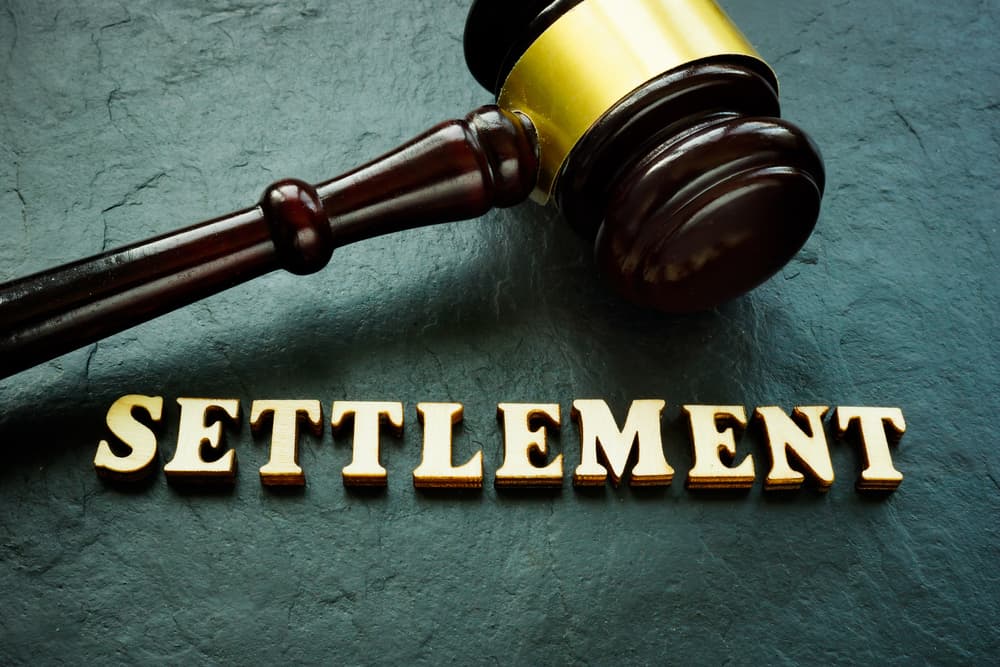How long does it take a personal injury case to settle? Accidents and various incidents occur daily, giving rise to personal injury claims. When someone acts negligently, and their carelessness causes injury to someone else, that person sustains a personal injury.
In general, personal injuries are those arising through another person’s negligence. These claims often end with a settlement that compensates the injured party. However, how long settlements take can vary. For more information, reach out to a personal injury lawyer.
Do You Have a Personal Injury Claim?
If you were recently injured, you might wonder if you have a personal injury claim.
Consider:
- Was another person or party careless or intentional in causing your injury?
- Did you suffer an injury that required medical attention?
- Did your injury result in damages—such as medical expenses and pain and suffering?
Injured parties who can answer yes to all of these questions likely have a valid personal injury claim. However, even if you can’t answer yes to all three of them, it’s always best to have a personal injury attorney review the circumstances of your injury to be sure.
Personal injuries can happen in many different circumstances, including:
- Motor vehicle accidents
- Bike and scooter accidents
- Pedestrian accidents
- Slip and falls
- Premise liability incidents
- Dog bites
- School and Playground accidents
- Workplace accidents
However, this isn’t an inclusive list. Any injury you sustain that arises from negligence or an intentional act by another person is a personal injury that warrants calling a personal injury. You may or may not have a valid legal claim or need representation from an attorney. However, if you don’t have them review your case, you might be walking away from money that is rightfully yours.
Damages Resulting From Personal Injuries
Damages refer to the losses stemming from the at-fault party’s negligence or other wrongdoing. This is what a personal injury victim seeks and receives compensation for.
The types and values of damages are different from one case to the next. When you meet with a personal injury attorney, they can explain what types of damages might apply in your case. The most common damages arising from a personal injury include economic and non-economic.
Economic damages are also known as special damages and are the hard costs of your injury.
They include lost income, loss of future earning capacity, and medical expenses such as:
- Ambulance services
- Hospital and emergency room charges
- Hospital and emergency room physician bills
- Chiropractic care
- Physical therapy or rehab
- Medical tests like lab work, X-rays, CT scans, MRIs
- Physician and radiologist fees for interpreting test results
- Prescriptions
- Medical equipment such as crutches or a wheelchair
Special damages are easy to calculate and are objective. There’s no guessing how much a medical bill is.
On the other hand, non-economic or general damages are subjective. They have no inherent value, making it difficult to obtain fair compensation for them. Your personal injury lawyer can negotiate so that you receive a fair settlement for these types of damages.
General damages include:
- Pain and suffering. The physical and emotional pain you have endured
- Loss of consortium. A loss of ability to give or receive affection or the benefits of a family, usually a marriage relationship
- Loss of enjoyment of life. The loss of present and future enjoyment of everyday activities, plus hobbies, daily exercise, the company of friends, and other recreational opportunities
Even though these damages are non-calculable, they are no less critical to your claim. An experienced personal injury attorney understands this and will work tirelessly to prove their existence and value in your claim.
Resolving a Personal Injury Claim
There are generally two ways in which an accident victim can resolve a personal injury claim:
- Through a negotiated settlement
- Litigation (going to court and letting a judge or jury decide the outcome of the case)
Settlements
The majority of personal injury claims end with a settlement. According to the Department of Justice, personal injury cases comprise about 10 percent of all civil case filings. Only about three percent of civil cases, including those arising from motor vehicle accidents, ever go to trial. So why do such a high percentage of personal injury claims settle? Because settlements can be quite beneficial for all parties involved.
Settlements give all parties more control over the final outcome of the case. Instead of leaving the decision up to a third party, it allows the involved parties to decide the fate of the claim. Settlements are also much less costly and time-consuming for everyone. It can take many hours of preparation and much expense to get a case ready for court and go through court proceedings. With a settlement, the parties can skip this process altogether.
For injured parties, going to court and having to testify in front of a jury can create incredible stress and even hurt their health and well-being while they recover from their injury. Avoiding a courtroom can also preserve a positive reputation for insurance companies and businesses.
How Settlements Work
The first step towards seeking compensation for a personal injury is to hire an experienced attorney. Doing this as soon as possible is imperative to protect your interests.
Once you hire an attorney, they will go to work investigating what and who caused your accident. They will also research to learn more about any applicable insurance companies. After they complete their research and investigation, they can send the insurance company a demand letter, or if the liable party isn’t insured, they will send it directly to them.
The demand letter details your claim, what happened, why they are liable, and how much you are requesting as a settlement. This letter kicks off the settlement process. Unless liability is extremely clear, it’s highly unlikely that you will receive the amount your attorney requests in your demand letter.
From there, the insurance company or their attorneys will contact your attorney to begin negotiations. These can take place in person at a mediation conference, on the phone, or via email. Many factors will determine how long this process takes.
Even the most straightforward personal injury settlements can sometimes take months. More complex cases can take a year or two. However, when you hire a seasoned personal injury attorney, you will have peace of mind that they are doing everything they can to get you the highest settlement possible as soon as they can.
Complicated claims that may take longer to settle or are at higher risk of being litigated include those with:
- High-dollar demands involving severe or catastrophic injuries
- Allegations of mutual fault
- Several injury victims involved in the same accident/incident
- Several at-fault parties are trying to shift liability to each other
A faster settlement is more likely if:
- The insurance company isn’t contesting liability
- Your injuries and damages are well documented
- You’re demanding a reasonable settlement amount
- There is a single at-fault party
- You are the only injured party in the accident/incident
Claimants should always remember that even though an attorney represents them, they are the ones in control. They should listen to their attorney’s advice about whether to accept a settlement and why. However, the injured party is the one who gets to choose if they want to accept a settlement or keep negotiating. A good personal injury attorney will present you with all of your offers and guide you in the decision-making process. But they will ultimately let you decide.
How Do Insurers Pay Personal Injury Settlements?
Personal injury settlements are the financial representation of an at-fault party or their insurance company, making an injured party “whole again.” Injured parties are entitled to receive compensation for their injuries under civil state laws. Sometimes, they receive compensation through a negotiated settlement with the help of an experienced personal injury lawyer. Other times, their attorney must help them litigate their claim in court, so they can receive what they should.
Settlements can be paid all at once as a lump sum or as a structured settlement over time. The majority are the former, although choosing the latter might help some injured parties to make sure they don’t spend their settlement all at once.
Once your personal injury lawyer receives your settlement check on your behalf, they will fulfill any outstanding contingency fees, medical bills, liens, or legal expenses attached to your case first. Then, you will receive what you are entitled to obtain from the settlement and are free to do with it as you want.
Once My Case Settles, How Long How Long Will It Take to Receive My Portion?
The answer is very specific to each insurance company, lawyer, and law firm. In some instances, it can take a few weeks for the insurance company to issue the check and for your attorney’s office to sort out your account and then issue you a check.
What Is a Medical Lien?
Often, medical bills after a personal injury can be quite substantial. They can be difficult, if not impossible, for an injured party to pay, even if they have their own health insurance.
In these cases, your attorney can arrange a medical lien. This type of lien stops collection efforts and gives medical providers a legal claim to a portion of your settlement or jury award. It protects your credit and reduce your stress but also gives medical providers a legal guarantee that they will receive payment for their services once your case resolves.
Are Successful Claimants Required to Pay Taxes on Injury Settlements?
You might owe taxes on part of your award in the tax year you received the settlement check. However, the federal government typically doesn’t tax injury settlements as income. Check with your attorney and tax accountant to be sure about your settlement and tax liabilities.
Contacting a Personal Injury Attorney as Soon as Possible is Crucial
While you don’t want to rush to settle your injury claim with the insurance company, you do want to contact a skilled personal injury attorney as soon as possible because:
- The statute of limitations: All states have a statute of limitations. This is a deadline that only gives you a certain number of years from the date of your personal injury to file a legal case (typically between one and four years). If you miss this deadline, you no longer have legal recourse to recover money for your damages. However, with a lawyer on your side, you can be assured that your case will be filed on time should it become necessary.
- Preserving evidence: The more time passes after your car accident, the more likely the evidence necessary to prove the other driver’s liability and your damages will be lost. Witnesses’ memories can fade, physical evidence can be lost or destroyed, and roadways can even change. The sooner you hire an attorney, the sooner they can get to work collecting and preserving evidence in your case. The burden of proof is on the injured party in every personal injury case. You won’t receive the compensation you deserve if you don’t have reliable, substantial evidence.
- Protection from the insurance company: Insurance companies are in business to make money, just like any other business. The more money they pay on their claims, the less they make. They deny claims or offer low and unfair settlements whenever possible to increase their profitability. Not only will legal representation keep you from accepting a lowball offer too soon, but it will also prevent you from making other insurance mistakes, such as agreeing to a recorded statement, sharing too much information, and allowing them access to your previous medical records. These are all tactics they use to make a profit and cheat you out of what the law entitles you to receive for your damages.

Call a Reputable Personal Injury Lawyer Today
You deserve compensation for your injuries if they were the result of another person’s negligent actions. After such an injury, you must contact an personal injury attorney as soon as you can. In most cases, you can reach a settlement with an insurance company, so you can avoid going to court.



